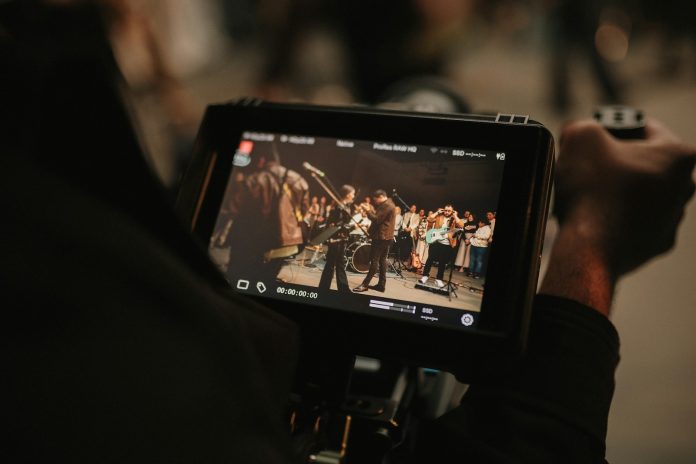Attending a live concert is a unique experience, where music fans can come together to celebrate their love for an artist, band, or genre. The energy of the crowd, the thrill of hearing favorite songs performed live, and the sheer excitement of being in the presence of talent make concerts a memorable event. In today’s digital age, one of the most common ways to relive such experiences is by capturing moments on video or taking photographs. Many concertgoers want to preserve the magic of the event, share it with friends, or simply have something to look back on.
However, the rise of smartphone cameras and social media has raised new challenges and questions about concert filming etiquette. While fans are eager to document the moment, their actions can sometimes disrupt the experience for others or infringe on the rights of artists and event organizers. In this essay, we will explore the rules and etiquette of filming at concerts, examining the balance between capturing personal memories and respecting the environment, performers, and fellow attendees.
The Evolution of Concert Filming
The concept of capturing live performances is nothing new. Before the advent of smartphones and digital cameras, professional videographers and photographers were hired to record concerts for promotional purposes, documentaries, or commercial releases. However, with the advent of mobile technology and social media, nearly every concertgoer now has the ability to film or photograph a live performance at the tip of their fingers.
While this has led to increased exposure for artists, allowing fans to share their favorite performances or rare moments online, it has also introduced concerns about intellectual property, crowd disruption, and the overall concert experience. In response to this shift, artists and venues have developed specific rules around concert filming, balancing the opportunity to capture memories with the need for respect and consideration.
Rules for Concert Filming
Every concert venue has its own policies regarding filming and photography, which are usually outlined in the event’s terms and conditions. These rules can vary from one artist to another, from venue to venue, and sometimes even from one type of performance to another. It’s essential for concertgoers to familiarize themselves with these rules to avoid inconveniences, interruptions, or even fines.
- No Professional Equipment Without Permission
The first and most fundamental rule at most concerts is that professional filming or photography equipment is strictly prohibited unless prior permission is granted. This includes tripods, large cameras with detachable lenses, and lighting equipment. These devices can block the view of others and take up significant space, disrupting the flow of the concert.
If you intend to film or photograph using professional equipment, it’s essential to request permission from the event organizers or the artist’s team beforehand. Often, high-profile concerts will have photographers or videographers on-site with official credentials, and attempting to bypass these rules could result in being asked to leave or having your equipment confiscated.
- Smartphone Use and Social Media Sharing
Smartphones have become the most common tool for concertgoers who want to capture memories. While most venues and artists allow phones to be used during a performance, many have guidelines on how they should be used. Some artists, for example, may allow filming during certain portions of a show but prohibit recording during key moments of their performance, like during an encore or a particularly emotional song.
Additionally, while fans love to share their concert footage on social media, it’s essential to keep in mind that not all footage is meant for public consumption. Many venues and performers discourage uploading full-length songs or entire performances online, as this could infringe on the artist’s intellectual property rights. Posting clips of a performance on social media is generally fine, but uploading entire sets may violate copyright laws and could lead to your content being taken down.
Moreover, some artists encourage fans to share their experiences online, often with specific hashtags, as a way to engage with their community. However, it’s important to remember that even when sharing content on social media, it’s always best to be respectful of others around you. Avoid blocking other attendees’ views with your phone or spending the entire concert behind a camera lens.
- Respecting the Artist’s Wishes
While you may be excited to capture a live performance, it’s crucial to respect the artist’s wishes regarding filming. Some artists actively discourage fans from recording their performances. They may feel that the magic of the moment is lost through the lens of a camera, or they may simply prefer to maintain control over the distribution of their music. For instance, artists like Beyoncé and Jack White have publicly expressed their stance against excessive filming during live shows, encouraging fans to put their phones away and fully immerse themselves in the performance.
If an artist or venue has specifically requested that phones not be used during a show, it’s important to respect their wishes. Continuing to film after a clear request to stop can come across as disrespectful to the performer and may even lead to removal from the event.
- Avoiding Disruption and Distraction
One of the most significant concerns with concert filming is that it can disrupt the experience for those around you. Filming a concert, especially with a large smartphone or tablet, can obstruct the view for people behind you, making it difficult for them to enjoy the show. If you’re constantly holding your phone in the air, it may block others from seeing the performance. Moreover, some concertgoers are more interested in being fully present in the moment rather than watching the performance through the screen of someone else’s phone.
It’s important to remember that your experience shouldn’t come at the expense of others’ enjoyment. If you want to capture a few seconds of a favorite song, do so in a way that is discreet and respectful. Don’t obstruct the view of others or spend the entire concert recording, as this can lead to frustration among fellow attendees.
- Recording Audio and Copyright Laws
In many cases, concertgoers will attempt to record audio during a performance to capture the live sound. However, recording an entire set or specific tracks can violate copyright laws. For many artists, the recording of their performances is an extension of their intellectual property rights, and unauthorized recordings can be subject to legal action.
Even if you’re only recording audio for personal use, it’s important to understand the legal risks involved. Some venues or performers may allow audio recording for personal use but may still prohibit the distribution of those recordings. If you’re unsure about the rules regarding audio recording, it’s best to refrain from recording or ask the venue staff about the specific policies in place.
Filming Etiquette: Respecting the Concert Experience
Beyond the technicalities of concert filming, there is also an etiquette involved. It’s not enough to simply follow the rules; concertgoers must also consider the broader impact their actions have on the live experience.
- Limit the Length of Your Clips
One common etiquette mistake is filming long stretches of a performance, such as entire songs or even multiple songs in a row. While it’s understandable that you may want to capture the best moments, be mindful that others came to enjoy the show live and not watch it through your phone screen. Limit your filming to short clips—maybe just a few seconds of a favorite moment—so you can share the experience without detracting from the live atmosphere. - Be Present and Enjoy the Show
Filming should never take priority over experiencing the live concert itself. While it’s tempting to want to capture every moment, remember that the essence of a concert is being in the moment, feeling the energy of the crowd, and connecting with the music. Constantly recording can make it hard to stay fully immersed in the performance. Try to spend as much time enjoying the show as possible, and only film or photograph when it truly enhances your experience. - Don’t Block the Artist’s View
Some artists express their discomfort with fans recording or photographing their performances, especially if they feel it detracts from the authenticity of the event. Be respectful of the artist’s wishes by putting your phone down when requested and focusing on being present rather than behind a camera lens.


